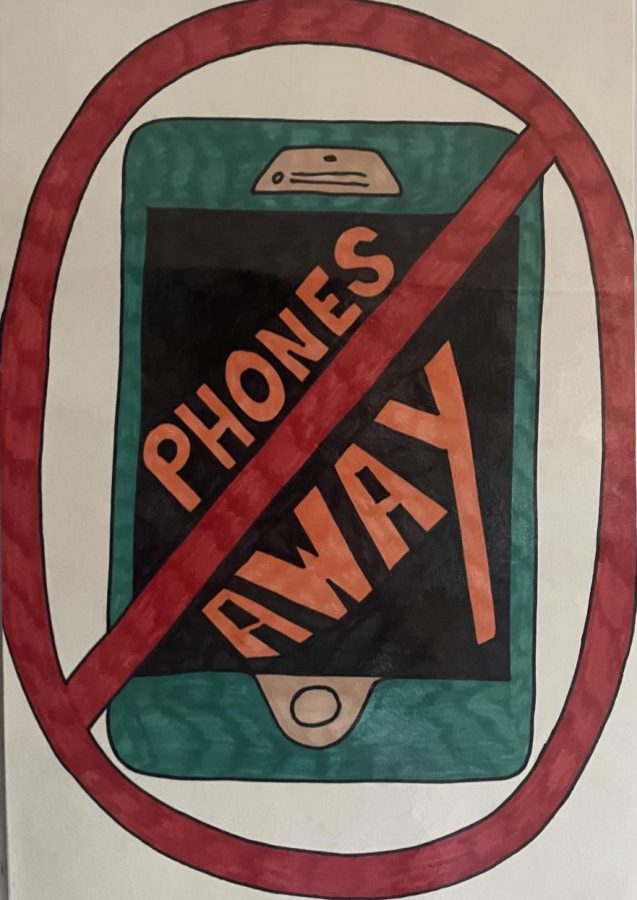How Teachers Handle Phones
Photo by Sloane Contrino
Ms. Bacchiocchi makes her thoughts about phones clear.
November 4, 2021
In the last year and a half, students, schools and teachers have changed in ways no one could have imagined. According to some teachers at Barnstable High, one thing that has remained the same is students’ preoccupation with phones.
“I think that the appropriate use of a phone is the biggest issue in a classroom,” said geometry teacher Mrs. Johnson. With being back in person learning and less use of computer screens, Johnson sees no change in how much students use their phones. Hence, she feels there is no need to tighten restrictions.
Policies between teachers and amongst age varies. Amongst BHS staff, it is common consensus that different age groups can be trusted and held responsible at different levels when it comes to their phones, and that it is fair to have different regulations depending on students’ age and the type of class.
Naturally, students have complaints. In a world which relies on quick communication through cell phones, students express difficulties building mutual respect with teachers who deny phone access. “It feels like they don’t trust us, which makes us not trust them,” says eighth grade student, Caitlin Ward. Concurrently, she understands their reasoning.
However, few teachers and classrooms uphold those strict policies. Mrs. Johnson sees no-phone policies as the simplest, easiest way to get students to put them away, as when they are given the freedom, they too often take more than intended. “For me it’s all about give and take,” Johnson says.
Rather than having to tell students to put cell phones away, some teachers are more concerned with what students are actually missing when they’re on their phones. English teacher Christy Salley said, “I want them to understand that when they are on their phones, they are missing things.” She allows students to have their phones but holds them responsible for knowing what they missed. In addition, based on Salley’s experiences in the English classroom, students would learn more by writing it down, rather than taking a picture of something important. However, she respects how this strategy works for some, and will always allow it when students ask.


